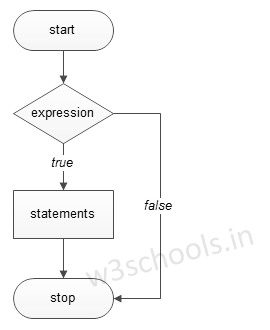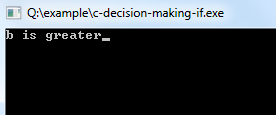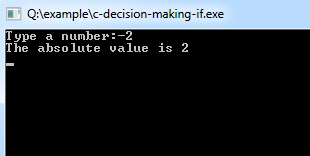Flow Control
C if Statements
If statements in C is used to control the program flow based on some condition, it’s used to execute some statement code block if expression is evaluated to true, otherwise it will get skipped. This is an simplest way to modify the control flow of the program.
The if statement in C can be used in various forms depending on the situation and complexity.
There are four different types of if statement in C. These are:
The basic format of if statement is:
Syntax:
if(test_expression)
{
statement 1;
statement 2;
...
}‘Statement n’ can be a statement or a set of statements and if the test expression is evaluated to true, the statement block will get executed or it will get skipped.
Figure – Flowchart of if Statement:

Example of a C Program to Demonstrate if Statement
Example:
#include<stdio.h>
main()
{
int a = 15, b = 20;
if (b & gt; a) {
printf("b is greater");
}
}Program Output:

Example:
#include<stdio.h>
main()
{
int number;
printf( & quot; Type a number: & quot;);
scanf( & quot; % d & quot;, & amp; number);
/* check whether the number is negative number */
if (number & lt; 0) {
/* If it is a negative then convert it into positive. */
number = -number;
printf( & quot; The absolute value is % d\ n & quot;, number);
}
grtch();
} Program Output:

Comments
Post a Comment